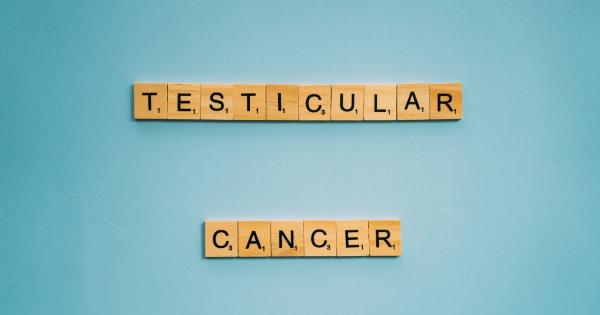Testosterone is a hormone that plays a vital role in male health and wellness. In addition to maintaining proper sexual function and muscle mass, testosterone also helps with bone density, mood, and energy levels.
Low levels of testosterone can lead to several health problems such as increased risk of depression, decreased libido, and reduced muscle mass. While age, genetics, and illness can all impact testosterone levels, your diet can also play a role.
30 Foods that Decrease Testosterone Levels in Men
1. Flaxseed
Flaxseed is a popular health food that is high in fiber and antioxidants, but it can also be detrimental for men’s health. Flaxseed contains high levels of lignans, which mimic estrogen in the body and can lower testosterone levels over time.
2. Soy
Soy contains phytoestrogens, compounds that mimic the effects of estrogen in the body. For men, this can cause a decrease in testosterone levels. While soy can be a part of a healthy diet, men should limit their intake to avoid negative side effects.
3. Spearmint
Studies have shown that drinking spearmint tea twice a day for five days can significantly lower testosterone levels in men. While spearmint may have other health benefits, it is not recommended for men with low testosterone levels.
4. Licorice Root
Licorice root contains compounds that can decrease testosterone levels by increasing estrogen levels in the body.
While licorice root can be used therapeutically for other health conditions, it can have negative effects on men’s testosterone levels.
5. Alcohol
Alcohol has been shown to decrease testosterone levels in men. This is because alcohol can increase the conversion of testosterone to estrogen in the body.
While moderate alcohol consumption is unlikely to cause long-term damage to testosterone levels, heavy drinking can be detrimental.
6. Processed Foods
Processed foods are typically high in trans fats, sugar, and refined carbohydrates, all of which can negatively impact testosterone levels in men.
While it is okay to indulge in fast food once in a while, a diet high in processed foods can lead to long-term health problems.
7. Peppermint
Peppermint has been shown to have anti-androgenic effects, meaning it can decrease testosterone levels in men. While peppermint tea and supplements may have other health benefits, men with low testosterone levels should avoid consuming it.
8. Sugar
High levels of sugar in the diet have been linked to reduced testosterone levels in men. This is because sugar can interfere with the functioning of the endocrine system, which produces hormones like testosterone.
To maintain optimal testosterone levels, it is important to limit intake of sugary foods and drinks.
9. Vegetable Oils
Vegetable oils like canola, soybean, and corn oil are high in omega-6 fatty acids, which have been shown to increase inflammation in the body. Inflammation can interfere with the production of testosterone in men, leading to decreased levels over time.
10. Low-fat Dairy
Low-fat dairy products like skim milk and yogurt are often fortified with estrogen to mimic the natural hormone levels found in whole milk.
However, this can have negative effects on men’s testosterone levels, leading to decreased libido and other health problems over time.
11. Processed Meats
Processed meats like bacon, lunch meat, and sausage are high in preservatives and other additives that can negatively impact testosterone levels in men. Eating a diet high in processed meats can lead to long-term health problems.
12. High-Carb Foods
High-carb foods like bread, pasta, and rice can cause an increase in insulin levels in the body. High insulin levels have been shown to decrease testosterone levels in men, leading to a range of health problems such as decreased libido and muscle mass.
13. Mint
Mint has been shown to have anti-androgenic effects, similar to spearmint and peppermint. While mint can be used as a therapeutic herb, men with low testosterone levels should avoid large amounts of it in their diet.
14. Caffeine
Caffeine can cause the release of cortisol in the body, a hormone that can interfere with the production of testosterone. In addition, caffeine can cause dehydration which can further reduce testosterone levels in men.
Moderation is key when consuming caffeine.
15. Pesticides
Many pesticides used in modern agriculture have been shown to have anti-androgenic or estrogenic effects in the body. Exposure to these pesticides can lead to reduced testosterone levels in men.
To limit exposure, it is important to choose organic, pesticide-free foods whenever possible.
16. Processed Soy Products
In addition to soy, processed soy products like tofu and soy milk can also have negative effects on men’s testosterone levels. This is because they contain high levels of phytoestrogens, which can mimic the effects of estrogen in the body.
17. High-Protein Diets
While protein is an essential nutrient, consuming too much can negatively impact testosterone levels in men. High-protein diets can lead to an increase in insulin levels in the body, which can interfere with testosterone production.
It is important to maintain a balanced diet to avoid negative impacts on testosterone levels.
18. Polyunsaturated Fats
Polyunsaturated fats like those found in vegetable oils can increase inflammation in the body. This inflammation can interfere with the production of testosterone in men, leading to a decreased libido and muscle mass.
19. Vegetable Proteins
While protein is an important nutrient, protein from vegetable sources like beans and peas can have negative effects on testosterone levels in men.
This is because these sources of protein are also high in estrogen-like compounds, which can mimic the effects of estrogen in the body.
20. High Mercury Fish
High mercury fish like tuna and swordfish can have negative effects on men’s testosterone levels. This is because mercury can interfere with the functioning of the endocrine glands, which produce hormones like testosterone.
To maintain optimal testosterone levels, it is important to limit intake of high-mercury fish.
21. White Flour Products
White flour products like bread and pasta are often fortified with synthetic estrogen to mimic the hormone levels found in whole grains.
While these products may be healthy in moderation, men with low testosterone levels should avoid consuming them in excess.
22. Highly Processed Grains
Highly processed grains like white rice and flour can cause an increase in insulin levels in the body. High insulin levels have been shown to negatively impact testosterone levels in men, leading to a decreased libido and muscle mass.
23. Commercial Dairy Products
Commercial dairy products like milk and cheese often contain synthetic hormones like bovine growth hormone and estrogen to increase milk production and/or mimic natural hormone levels.
These hormones can have negative effects on men’s testosterone levels over time.
24. Hydrogenated Oils
Hydrogenated oils like margarine and vegetable shortening are high in trans-fats, which have been linked to inflammation and negative impacts on testosterone production in men.
25. High-Sodium Foods
High-sodium foods like canned soup and processed meats can have negative effects on testosterone levels in men. Over time, a diet high in sodium can lead to increased inflammation and a decreased ability to produce testosterone.
26. Junk Food
Junk food is typically high in sugar, fat, and processed ingredients, all of which can have negative impacts on men’s testosterone levels.
It is important to maintain a healthy diet to preserve optimal hormone levels and avoid negative health outcomes in the long-term.
27. High Fructose Corn Syrup
High fructose corn syrup is a sweetener that is commonly used in processed foods and drinks. It has been linked to negative impacts on testosterone levels in men, leading to decreased libido and muscle mass over time.
28. Low-Calorie Sweeteners
Low-calorie sweeteners like aspartame and sucralose can have negative impacts on men’s testosterone levels.
Studies have shown that artificial sweeteners can interfere with the functioning of the endocrine system, leading to reduced testosterone levels over time.
29. Fast Food
Fast food is typically high in processed ingredients, unhealthy fats, and sugar. A diet high in fast food can have negative effects on testosterone levels in men, leading to decreased energy, libido, and muscle mass over time.
30. High-Glycemic Index Foods
High-glycemic index foods like candy and sugary drinks can cause an increase in insulin levels in the body. Over time, this can lead to decreased testosterone production in men, leading to a range of negative health outcomes.
Conclusion
While many factors can impact testosterone levels in men, diet plays a vital role in maintaining optimal hormone levels over time.
By avoiding foods that can negatively impact testosterone production and consuming a diet rich in whole, nutrient-dense foods, men can maintain optimal hormone levels and protect their health in the long-term.































